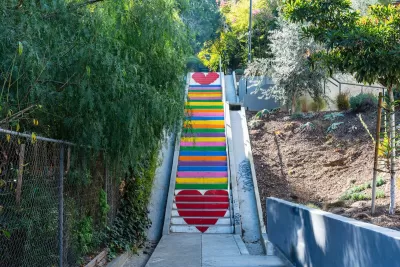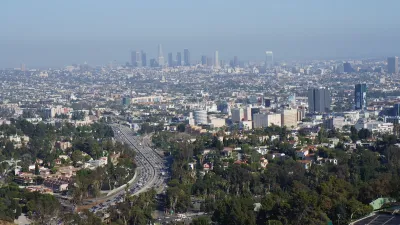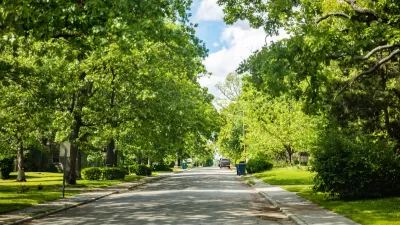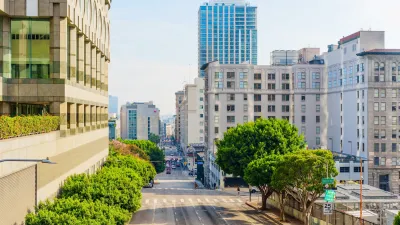The Los Angeles Urban Forest Equity Collective has developed an equity-centered tree-planting framework and toolkit to address historic underinvestment and mitigate extreme heat in vulnerable neighborhoods.

Trees play a critical role in mitigating extreme heat, a growing and deadly impact of climate change. Research suggests that increasing tree canopy in the most heat-vulnerable neighborhoods could save up to half of the lives lost to heat-related incidents. However, tree planting in Los Angeles faces challenges such as its extensive roadways, semi-arid climate, and socioeconomic disparities.
In response, UCLA researcher Edith de Guzman co-founded the Los Angeles Urban Forest Equity Collective, bringing together forestry experts, city officials, community organizations, and researchers to address the legacy of underinvestment in certain neighborhoods. The Collective recently published a decision-making framework and toolkit to advance urban forest equity and improve health outcomes through inclusive, practical solutions.
As reported by Mara Elana Burstein, the framework emphasizes equity-centered tree planting, featuring public engagement strategies co-developed with community organizations to ensure resident voices are prioritized. By rethinking traditional approaches, the Collective developed innovative strategies to "green" historically underserved neighborhoods that have lacked the resources to enjoy the environmental benefits seen in wealthier areas. Their work has produced actionable steps for municipal leaders, local organizations, and community members to overcome barriers to equitable tree planting.
As part of their efforts, the Collective introduced hyperlocal implementation strategies for Central Alameda and Sylmar, two Los Angeles neighborhoods with distinct challenges. By collaborating with residents and city officials, the team identified cooling solutions tailored to each area, from dense public housing in Central Alameda to the sprawling single-family homes of Sylmar. These examples showcase how the tools and framework can drive equitable urban greening and create healthier, more resilient communities.
FULL STORY: LCI co-develops decision-making framework and toolkit that centers equity in tree planting

Maui's Vacation Rental Debate Turns Ugly
Verbal attacks, misinformation campaigns and fistfights plague a high-stakes debate to convert thousands of vacation rentals into long-term housing.

Planetizen Federal Action Tracker
A weekly monitor of how Trump’s orders and actions are impacting planners and planning in America.

In Urban Planning, AI Prompting Could be the New Design Thinking
Creativity has long been key to great urban design. What if we see AI as our new creative partner?

King County Supportive Housing Program Offers Hope for Unhoused Residents
The county is taking a ‘Housing First’ approach that prioritizes getting people into housing, then offering wraparound supportive services.

Researchers Use AI to Get Clearer Picture of US Housing
Analysts are using artificial intelligence to supercharge their research by allowing them to comb through data faster. Though these AI tools can be error prone, they save time and housing researchers are optimistic about the future.

Making Shared Micromobility More Inclusive
Cities and shared mobility system operators can do more to include people with disabilities in planning and operations, per a new report.
Urban Design for Planners 1: Software Tools
This six-course series explores essential urban design concepts using open source software and equips planners with the tools they need to participate fully in the urban design process.
Planning for Universal Design
Learn the tools for implementing Universal Design in planning regulations.
planning NEXT
Appalachian Highlands Housing Partners
Mpact (founded as Rail~Volution)
City of Camden Redevelopment Agency
City of Astoria
City of Portland
City of Laramie





























